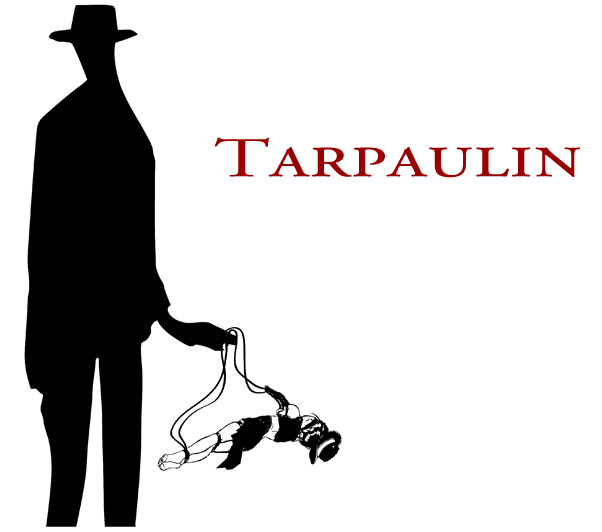 Noelle Kocot
Noelle KocotSunny Wednesday
ISBN 9781933517391
Wave Books, 2009
$14
Reviewed by John Findura
Kurt Vonnegut famously wrote in Slaughterhouse-Five, of death, “Everything was beautiful and nothing hurt.” In Noelle Kocot’s fourth book of poetry, Sunny Wednesday, that sentiment is only partly true: everything here hurts. No page is read without feeling the sting and burn of the realization that, one day, the one you love most of all will be gone, not coming back. For Kocot it is her late husband, the composer Damon Tomblin. If there is any good that can come out of death, it is the fact that Kocot is able to create something beautiful and necessary out of the hurt that must be enveloping her.
The book has the tone of someone speaking slowly and quietly to herself in the back of an ill-lit church. It is not meant for us to hear. But how can we not eavesdrop on a voice filled with so much emotion? At times I almost felt the need to put Sunny Wednesday away, feeling guilty for finding so much to love in a book filled with so much loss. The poem “Once Upon a Time in America” starts with the lines, “Here in this room I slept in / As you lay dead and alone.” What could be more traumatic than that? What is more difficult for a reader to do than try and disconnect the poet’s voice from the poet herself when you know it is she who is speaking?
Like her previous collections, Kocot is meticulously reverent and sharp in her choices of words and their intercourse across lines. Sunny Wednesday is no exception, as in “For Damon,” where she closes the poem: “I have given up the greenness of my spirit // With yours, my toasted animal, my breath.” Perhaps the “greenness” of the spirit is indeed inexperience, but the feeling of jealousy over someone leaving also comes through, to say nothing of the lushness of this absence. The phrase “my toasted animal” also leaves one gasping, not just in terms of meaning, but in awe of how we can so closely hold spirit.
But more than anything else, Sunny Wednesday is an exercise in working through an event so horrible that it seems like it may never pass. Indeed, such loss as Kocot’s never leaves the living the same as it finds them. It’s unsettling to read some of these poems, such as “One Poem for Matthew Z.” (presumably Zapruder) where Kocot writes, lovingly:
ffffffffffff…The second time
ffffffffffffI’d ever heard my name spoken
ffffffffffffWith such care, a bum had just
ffffffffffffPut a cross on my husband’s grave
ffffffffffffAnd showed it to me. What does
ffffffffffffAll of this mean, Matthew?
That’s a good question, perhaps one the earliest poet asks, a question at the heart of any experience. It’s not clichéd, not worn and tired, because the trauma of loss here seems so authentic. The question, the proverbial “why,” is sometimes all that we are left with. Earlier in Sunny Wednesday, in “Entry,” Kocot writes:
ffffffffffffI ask myself, what is this life?
ffffffffffffWhat is this life with its risen characters
ffffffffffffWhat is this life with its new cartoons
ffffffffffffWhat is this tonality that lags
ffffffffffffBrave animal of eternal valor
ffffffffffffIsn’t it enough that I exist?
It is difficult not to yell out, “It is, Noelle, it is enough that you exist!” Towards the end of the collection comes the poem “Zero” and its ending lines:
ffffffffffffI’ve already washed my placard
ffffffffffffOf a sun rising in no particular direction,
ffffffffffffAnd given it to the last
ffffffffffffWho will be first
ffffffffffffAnd the first who will be last.
This sounds like the promise of someone giving up earthly pleasures in the course of waiting for the inevitable to finally arrive.
In the penultimate poem, “On the Death of My Mother’s Cat,” Kocot arrives at a question that is less inquiry than meditation: “I wonder what the chaos of the sun was / To her eyes before they closed.” It seems only natural and proper that the dead become one with all of the answers, while we are left here to ponder what we can never know.
***
John Findura holds an MFA from The New School. A Pushcart Prize nominee, he is the author of the chapbook Useful Shrapnel (Scantily Clad Press) and his poetry and criticism appear in journals such as Copper Nickel, Verse, Fugue, Fourteen Hills, Redivider, No Tell Motel, H_NGM_N, Jacket, and Rain Taxi, among others. Born in Paterson, he lives in Northern New Jersey with his wife and daughter.




